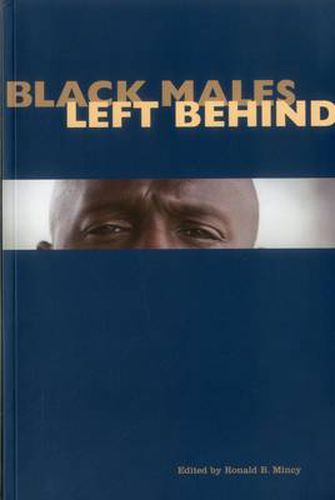Readings Newsletter
Become a Readings Member to make your shopping experience even easier.
Sign in or sign up for free!
You’re not far away from qualifying for FREE standard shipping within Australia
You’ve qualified for FREE standard shipping within Australia
The cart is loading…






Despite the overall economic gains in the 1990s, many young black men continue to have the poorest life chances of anyone in our society. Joblessness and low earnings among these less-educated young adults are contributing to reductions in marriage, increases in nonmarital childbearing, and a host of other social problems. In Black Males Left Behind, Ronald Mincy has assembled a distinguished group of experts who examine how less-educated black men fared relative to other less-educated young people during the economic expansion of the 1990s and why. Chapters explore the roles of the macroeconomy, the deconcentration of blue-collar employment, criminal justice policy, and the employment aspirations of young less-educated black men and consider their implications for the design of employment services, welfare-to-work policies, workforce development policy, and child support enforcement. Two chapters comprehensively review policy opportunities to assist less-educated young black fathers and discuss how to overcome political resistance to initiatives serving less-educated black men. This book makes a compelling case for greater public attention to a serious domestic problem.
$9.00 standard shipping within Australia
FREE standard shipping within Australia for orders over $100.00
Express & International shipping calculated at checkout
Despite the overall economic gains in the 1990s, many young black men continue to have the poorest life chances of anyone in our society. Joblessness and low earnings among these less-educated young adults are contributing to reductions in marriage, increases in nonmarital childbearing, and a host of other social problems. In Black Males Left Behind, Ronald Mincy has assembled a distinguished group of experts who examine how less-educated black men fared relative to other less-educated young people during the economic expansion of the 1990s and why. Chapters explore the roles of the macroeconomy, the deconcentration of blue-collar employment, criminal justice policy, and the employment aspirations of young less-educated black men and consider their implications for the design of employment services, welfare-to-work policies, workforce development policy, and child support enforcement. Two chapters comprehensively review policy opportunities to assist less-educated young black fathers and discuss how to overcome political resistance to initiatives serving less-educated black men. This book makes a compelling case for greater public attention to a serious domestic problem.